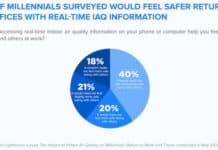Posted by Heidi Schwartz

They’re tech-savvy, open-minded, and achievement oriented, but if there is one thing that Millennials can learn from older generations, it’s the ability to cope effectively and productively with stress. Using data from their Coping Skills Assessment, researchers at PsychTests discovered that Millennials are more likely to use unhealthy and unproductive techniques to cope with stress.
While not necessarily funny, it is rather ironic how the generation that can text while making dinner still struggles with stress management—even more so than Baby Boomers. In the test, researchers compared the coping methods used by Generation Y, Generation X, and Baby Boomers, and discovered some interesting differences:
(Note: Scores range from 0 to 100. The higher the score, the more often the coping method is used.)
Healthy coping strategies
Problem Solving: A coping strategy that involves actively looking for solutions and creating a “plan of action” to deal with a stressful situation.
- Score for Millennials: 64
- Score for Generation X: 67
- Score for Boomers: 71
Information Seeking: A coping strategy that involves conducting research and seeking out information to better understand and deal with a stressor or problem.
- Score for Millennials: 59
- Score for Generation X: 65
- Score for Boomers: 68
Negotiation: Consists of making compromises in order to behave in way that fits the constraints of a situation.
- Score for Millennials: 63
- Score for Generation X: 66
- Score for Boomers: 69
Social Support: Consists of looking for emotional support from loved ones or friends.
- Score for Millennials: 51
- Score for Generation X: 53
- Score for Boomers: 57
Positive Cognitive Restructuring: Involves changing our perspective of a problem and viewing it in a more positive or productive light.
- Score for Millennials: 64
- Score for Generation X: 67
- Score for Boomers: 71
Emotional Regulation: Using relaxation techniques or finding healthy outlets to channel negative emotions.
- Score for Millennials: 56
- Score for Generation X: 56
- Score for Boomers: 63
Unhealthy coping strategies
Rumination: Involves thinking obsessively about a source of stress or a problem.
- Score for Millennials: 54
- Score for Generation X: 51
- Score for Boomers: 45
Avoidance: Tendency to avoid thinking about a problem and doing what is necessary to resolve it.
- Score for Millennials: 36
- Score for Generation X: 30
- Score for Boomers: 26
Opposition: Tendency to lash out at others when under stress, or to blame others for one’s problems.
- Score for Millennials: 42
- Score for Generation X: 39
- Score for Boomers: 34
“Dealing with stress is one of those ‘par for the course’ issues: Essentially, the older you get, the more you’ve experienced the good and the bad, and the better equipped you are at dealing with stressful situations,” explains Dr. Ilona Jerabek, president of the company. “What the Boomers have is resourcefulness. When faced with a problem, they can tap into the knowledge and experience they’ve accumulated and find a way to resolve the issue or at least make it more bearable. This isn’t to say that Millennials can’t handle pressure, but the fact that Boomers have ‘been around the block’ a few times, allows them to cope with stressors that are often new to Millennials, like work, financial, and relationship problems. The Millennials are also a generation that grew up with an abundance of helicopter parenting … many members of this cohort were sheltered from problems by their parents. They didn’t get a chance to experience failure, to learn the hard way, and to build up their resilience. The good news is that healthy coping strategies can be learned – and that’s something that older generations can teach to younger ones.”
Want to assess your coping skills? Visit this link.




















![[VIDEO] Collect Asset Data at the Speed of Walking a Building](https://facilityexecutive.com/wp-content/uploads/2024/02/maxresdefault-324x160.jpg)